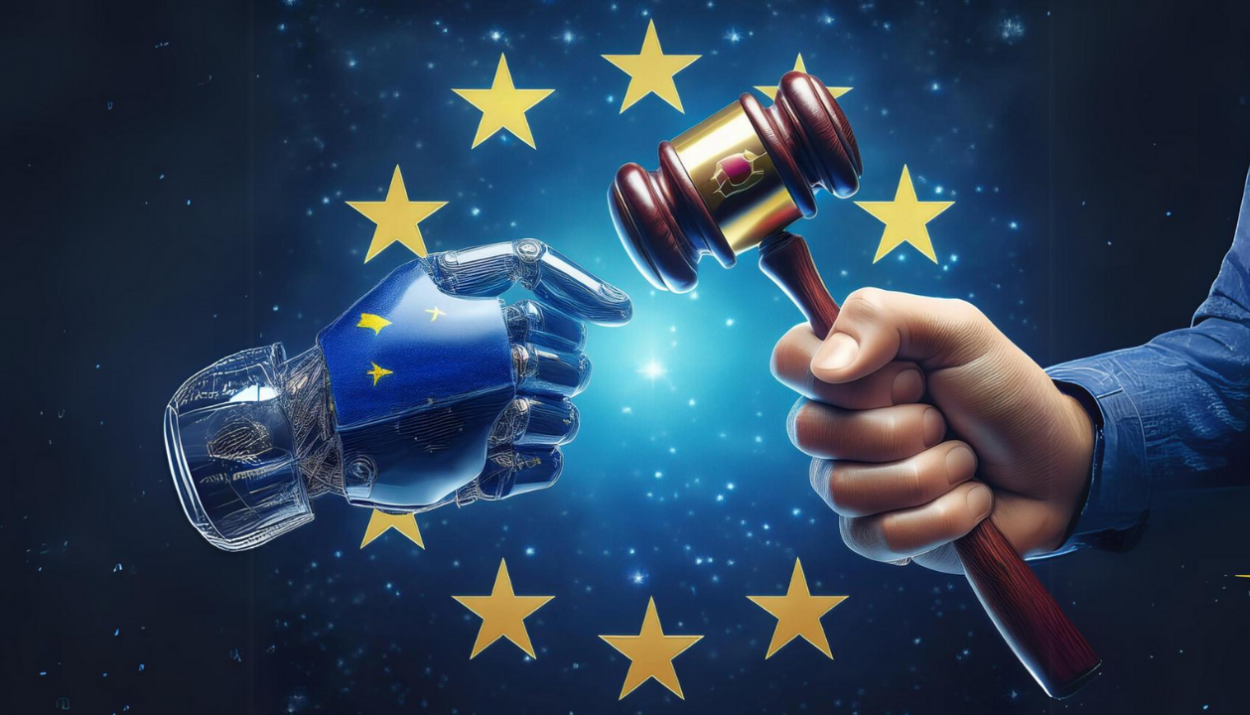The EU has just adopted rules governing the use of Artificial Intelligence on its territory. Binding from August 2026, they promote AI that “respects fundamental rights” and prohibit certain practices. Here are which ones and why.
To promote the entry of Artificial Intelligence “beneficial on a social and environmental level” in the daily lives of Europeans – individuals and businesses – the European Parliament has just adopted its first legislative text governing the marketing and use in Europe of artificial intelligence (AI) systems. Published in the EU OJ on 12 July, this text, both incentive and binding, creates a “European Office for AI” responsible for supervising the regulation.
It will be applicable and enforceable in its entirety from August 2, 2026, to give actors and controllers time to prepare.
If some articles aim to promote the emergence and use of “human-centric” AI And " trustworthy", others are intended to prevent situations that pose a risk to individual freedoms and fundamental rights, some of which have already been identified.
To this end, the text therefore imposes a clear framework, with its prohibitions, its requirements and its sanctions :
Subliminal techniques:
Among the practices prohibited by the new regulation, the European Parliament has focused on the use of AI systems that exploit subliminal techniques to manipulate human behavior by circumventing free will. For example, technologies invisible to the naked eye could to alter a person's behavior without their knowledge, causing physical or psychological harm. This practice is now prohibited. In addition, the legislation prohibits AI systems that exploit a person's vulnerability due to age or disability, in order to prevent potential abuse.
Rating according to opinions, religion…:
Another ban concerns social rating systems, a controversial practice in some countries. These aim to assess individuals based on their social behavior or personal characteristics. An approach deemed unfair and disproportionate, particularly when it leads to discrimination. Biometric categorisation systems, which could analyse sensitive characteristics such as political or religious opinions, are also prohibited, in the name of respect for the freedoms and fundamental rights of the individual in Europe.
Facial recognition in public places:
The regulation strictly regulates the uses of AI in the field of security, especially for real-time facial recognition in public spaces. This can only be used in exceptional situations., such as preventing an imminent terrorist threat or searching for missing children. In all cases, prior authorization of a judicial or administrative authority will be necessary. This is to prevent any abusive use of AI for security reasons.
Influencing an election:
High-risk AI systems, such as those influencing election outcomes or voter behavior, are also under strict control. Citizens will have the right to lodge complaints against these systems and to receive explanations on decisions impacting their rights. A measure that echoes the Cambridge Analytica scandal as well as the fake news and fake videos that are currently multiplying in the United States but also in France.
Severe financial sanctions
To encourage compliance, the legislation provides for sanctions. Failure to comply with these rules may result in heavy fines of up to 35 million euros or 7% of the global turnover of the infringing companies.
This ambitious legislative framework marks a key step for the regulation of AI in Europe, by promoting the development and ethical and responsible use of these technologies while protecting users against abuse. History will quickly tell whether it is sufficient and, above all, whether the means of enforcing it are sufficiently dissuasive and effective.






